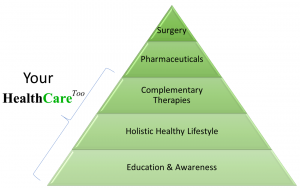Millennial Health Care

[P]rioritization of personal health has only increased as millennials age into adulthood, as the volume of discussions surrounding self-care has octupled in the past two years in comparison to the entire decade prior. The language of self-care has also expanded, encompassing various aspects of emotional, environmental and relational health. As millennials work harder to take care of themselves in greater ways, they’re effectively blurring the lines between reactive and preventative care. The ultimate millennial self-care goal is to have the solutions they need for holistic health with room to adjust for personal interpretation of their own needs and desires.
Although concerned about wellness, millennials are not instinctively turning to their insurance carriers or even their doctors to assist them. Half of millennials claim to visit a doctor less than once per year, 93% don’t schedule preventative care visits, and 42% are willing to cancel a check-up.
Source: Millennial Views Of Health Are Holistic Yet Inconsistent: How Can Brands Help?
Not About Brand Or Price?
The article goes on to examine ways for the “health care” industry to improve via pricing, transparency, etc. From our experience at HealthCare Too the author missed something important. In fact, what the author missed does not even apply just to millennials. From conversations, comments on our articles, and purchasing behavior we have found that people of all ages want their health to be more than prescriptions and doctor visits. There is widespread acceptance that the US has a “sick care” system. People do not want to become sick and they do not want to spend inordinate sums of money on things they do not understand. In millennial health care, however, there seems more willing to question traditional authority and the idea of “health” but they are not alone.
Our Model




